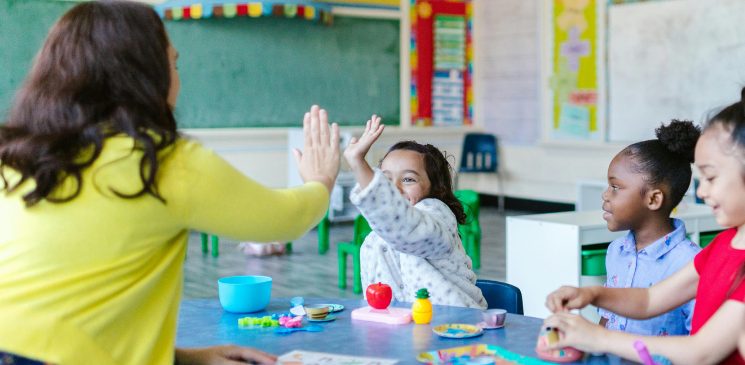
The special educational needs and disabilities (SEND) system, already known to be in deep trouble, now faces ‘a worsening crisis’ which, say experts, puts the UK on the brink of a national emergency.
The sixth update from the #ChildrenFirst campaign highlights that schools still lack skills, resources and access to support services, face delays in receiving statutory individual education, health and care plans (EHCP), and experience severe school SEND absences.
‘Addressing the SEND crisis update: Implementing what works in a worsening crisis’, produced by Child of the North (N8 Research Partnership and Health Equity North) in partnership with Centre for Young Lives, provides an updated and shocking picture from the last 12 months.
“Without action the SEND crisis will deepen, the UK’s economy will suffer, the NHS will remain under great pressure and the link between a child’s background and life chances will remain.”
The latest analyses highlights:
- A ‘widening gap’ since 2023/24 in severe absence (missing more than 50% of school) between children with an EHCP and children without Special Educational Needs (SEN).
- Delays in providing EHCPs with only 46.6 % being issued within the recommended 20 weeks
- Substantial regional variations mean children are disproportionally disadvantaged because of their postcode and are not receiving the support they need.
- Families are battling through complex systems to get help, with a recent survey finding 92 % reported navigating the system detrimental to their mental health.
- However, the update flags new evidence which confirms that teacher-based assessments could be used to shift SEN support from a diagnosis-led to a needs-led system.
“Novel analyses show that school readiness measures can be used to identify need early and address the structural inequalities blighting the UK.”
This update builds on last year’s Child of the North report ‘An evidence-based plan for addressing the special educational needs and disabilities (SEND) assessment and support crisis‘. The research gained government attention, but a Schools White Paper supporting SEND reform is still awaited.
The new analyses in the update confirm the results of previous research led by Dr Atkinson and extend the findings to show that these measures can help address the structural inequalities that lie at the heart of many of the UK’s SEND problems.
Illustrating what can be done to create inclusive education environments and address system issues and inequalities, Professor Papen highlighted the Morecambe Bay Curriculum, a flagship project at Lancaster University, involving educators from across the region.
“The Morecambe Bay Curriculum is an educator-led initiative to develop place-based curricula for learning about sustainability.” comments Professor Papen. “Being inclusive and creating learning resources for children with SEN is a core part of the MBC, showing the role schools can play as places of belonging and connection and helping to address concerns about high rates of absences amongst children with SEN.”
This is the sixth update to be released as part of Child of the North’s #ChildrenFirst campaign which, working through the N8 Research Partnership aims to build a country that works for all children.
Professor Mark Mon-Williams, the report series editor from the University of Leeds, said: “The UK needs to wake up to the existential threats we are facing as a country. These reports are helping to highlight that we have a national emergency on our hands.
“We need to cut through the noise and shift the public and political discourse to the topic of how we build a country that works for all children and young people.”
#ChildrenFirst builds on a major series of reports produced last year on key topics identified by Northern child health leaders as major issues of concern, including poverty, special educational needs, school attendance and mental health. The reports included evidence-based plans and recommendations for policymakers to help address these issues.
The #ChildrenFirst campaign also includes the launch of toolkits designed to help schools, child health workers and local authorities take practical steps to improve the health and wellbeing issues faced by the children and young people in their care. The toolkits, including for SEND, are being published on a weekly basis over a 12 week period from September to December 2025 alongside the re-released reports in the ‘A country that works for all children and young people’ series.
The toolkits provide evidence and suggestions about how all parties can work together to build a country that works for all children and young people. The goal is to ensure alignment between practitioners on the ground and government’s work on the Opportunity Mission to make certain that every child has the best possible start in life.
“Reforming the SEND system is an urgent task. Too many families face draining and bureaucratic battles to get the right support for their children, and many children are missing out on the extra help they need to learn. The Government’s forthcoming White Paper must be the beginning of a change of direction – one that puts children first, supports families as early as possible, and provides schools with the resources they need to boost the life chances of every child.”
Baroness Anne Longfield, Founder of the Centre for Young Lives
Each of the 12 reports is based on in-depth research carried out by academic experts in children and young people’s health and wellbeing from universities across the North of England and beyond, including N8 Research Partnership members Leeds, Manchester, Durham, York, Lancaster, Liverpool, Sheffield and Newcastle, the University of Bradford, and others.
